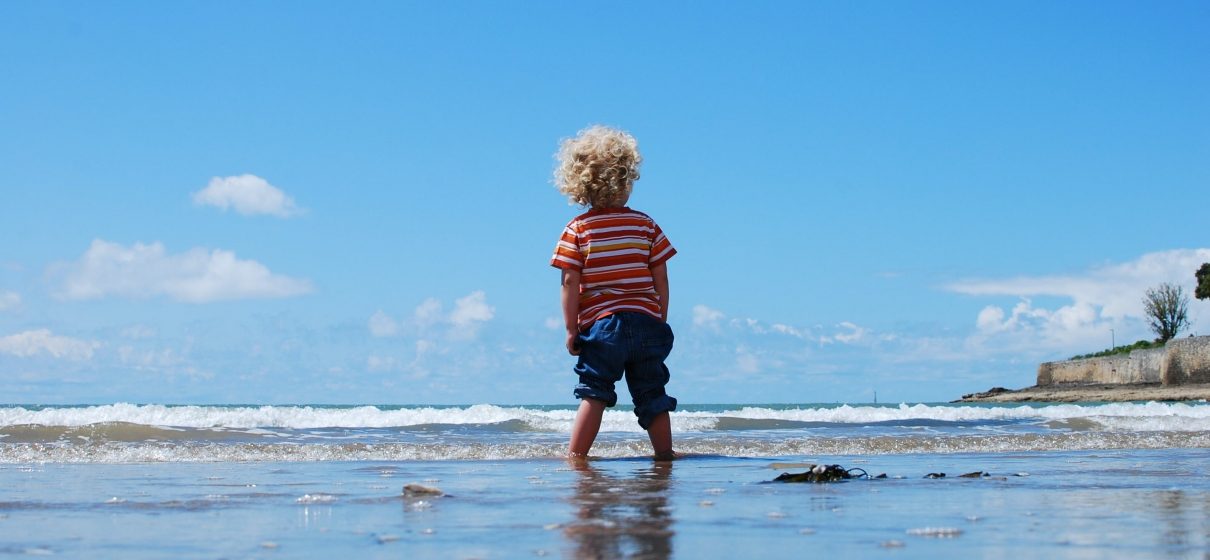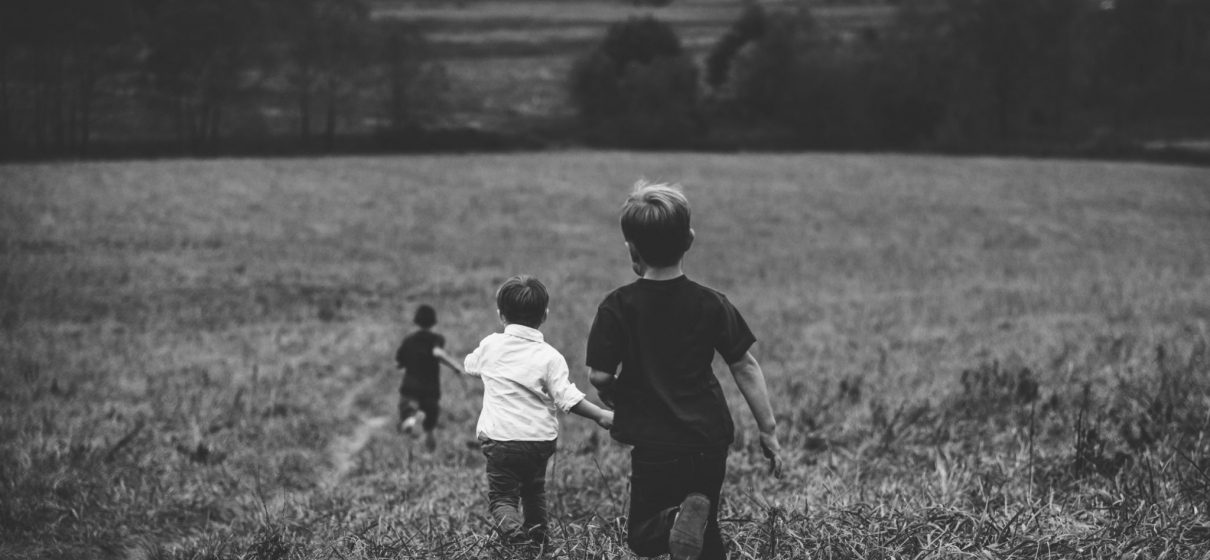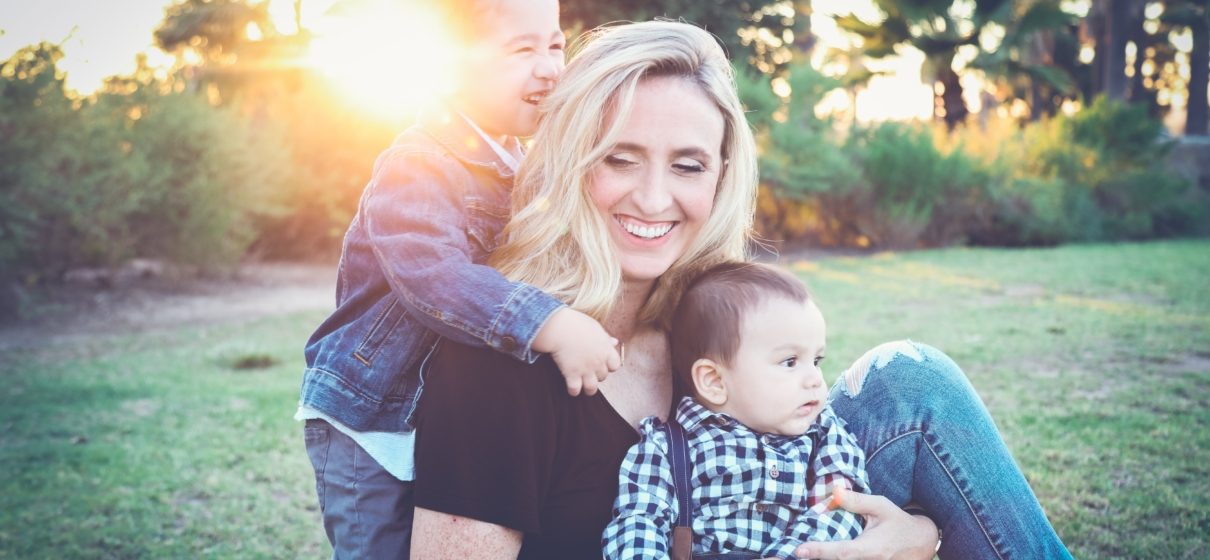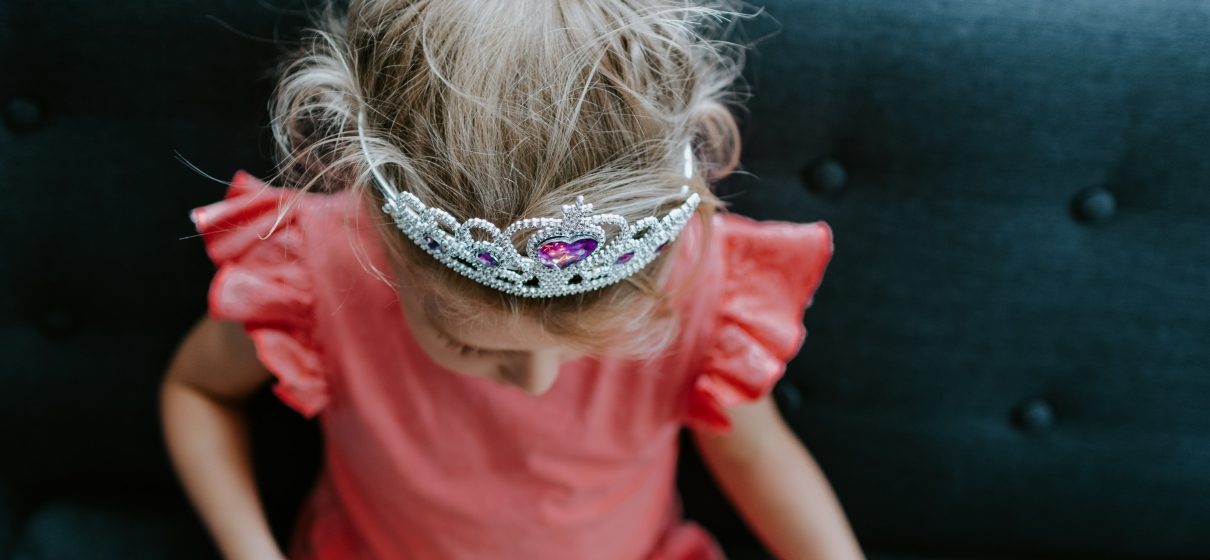6 Questions About Halloween for Christian Families
Amidst COVID-19 and the craziness that has been the year 2020, it’s hard to know what trick-or-treating will look like this weekend. But even before the global pandemic changed the way we thought about going out in public, many people had questions about Halloween, and whether or not Christians should take part in the festivities.
Last year, three of Clear Creek Community Church’s campus pastors, who are also fathers to young children, sat down to record an episode of the Clear Creek Resources Podcast discussing Halloween and what it means for followers of Jesus today.
Here are a few of the questions they tackled and their responses:
Is it okay for Christians to celebrate Halloween?
Aaron Lutz: “The benefit of asking the question is that people are trying to think theologically – think biblically – about whether they should or they shouldn’t. And so they’re essentially asking the question ‘How can I honor Jesus and celebrate Halloween?’”
AL: “In 1 Corinthians 10:31, Paul says ‘So, whether you eat or drink, or whatever you do, do all to the glory of God.’ So, Can I celebrate Halloween to the glory of God? Or, Should I abstain from celebrating that to the glory of God?”
Where does Halloween come from and should its origins impact the way Christians view it?
AL: “Halloween actually has roots both with pagan and Christian influences. Most historians agree that Halloween has its origins in a Celtic festival known as Sauin [also called Samhain]. And so it kind of marked the transition from this time of harvest with light and warmth and summer, to now, this fall/winter season of cold and darkness, which they associated with death. So the Celtic view was that the spiritual and physical realms kind of overlapped in that night… And so because of that, these people would put on masks and light bonfires to kind of scare the evil spirits away. That was over 2,000 years ago.”
AL: “In the fourth century, the Church started honoring martyrs on what is October 31. And so, by the seventh century, the Pope actually named November 1, ‘All Saints’ Day’ or ‘All Hallows’ Day.’ And so therefore, October 31 became ‘All Hallows’ Eve,’ or now what we call Halloween.”
AL: “Fast-forward to where we are today. Halloween is the second largest commercial holiday in America, right behind Christmas. So, a long time ago, it had some roots in paganism, then had some Christian tradition thrown in there. And now it seems to just be a commercial holiday.”
Ryan Lehtinen: “For the average person, they see it as something fun to go do and be a part of. Which, you know, if you look at the history of other holidays like Christmas and Easter – while today they look much different in their glorification of Jesus – they have similar historical backgrounds where there’s a mixture of paganism and Christianity, as the Christian church sought to reclaim some of those dates and really glorify God in those ways.”
Doesn’t Halloween celebrate death, demons, and evil? What do we do about that?
Lance Lawson: “What comes to mind is a passage we talk about a lot around here: The Great Commission (Matthew 28:18-20). ‘Go therefore and make disciples…’ Well, Jesus started that statement by saying, ‘All authority in heaven and on earth has been given to me.’ Jesus has overcome all of that. He’s overcome death and sin and darkness and evil. They aren’t something we should celebrate. We shouldn’t glorify those things, because we’re followers of Jesus. And we also don’t have to worry about that.”
LL: “And as far as how we teach our kids to participate in Halloween, I think we steer them away from celebrating death. And even, maybe in the way we decorate for Halloween, and how we participate in the weeks leading up to that can teach our kids what we think about darkness and death, and what we really believe about the way Jesus has overcome those things.”
What about the over-sexualization of Halloween? What can we do about that?
AL: “Man, teenagers and college students, young adults and older adults have turned Halloween into parties that are just the glorification of sex, and how you can turn any costume into a sexualized costume. And I think there’s probably more danger in a culture that’s obsessed with sex, that is given to lust, than maybe a culture that would lean towards celebrating Satan or evil.”
LL: “I think with dressing up, we have to be careful. Just because we’re going to a party that has a start and an end doesn’t give us an excuse to behave differently than Jesus would want us to behave any other hour of the day or any other place we would go. So Halloween and dressing up, those things are not a break from following Jesus.”
How can parents navigate Halloween with their kids who want to dress up?
AL: “My six-year-old daughter sees decorations in the neighborhood of skeletons and ghosts and all that, and is asking questions like, ‘Can I be a witch?’ Or ‘Can my brother be a skeleton?’ And so I’m asking her the question, ‘What is the purpose of Halloween for you? Like, what do you want to do?’ She just wants to trick-or-treat and go get candy. So I’m like, ‘Why dress up as something that is potentially evil, or glorifying death (I mean, I don’t use that language)?’ But, just helping her understand that this is just fun. ‘Let’s be something cute and fun.’”
LL: “Yeah, my boys are a little older, and so they like superhero stuff and Star Wars. That tends to be a pretty easy deal in my house. But a couple of years ago, my daughter, who’s six right now, wanted to be Moana. So, we ordered a costume off of Amazon I think, and when it showed up and she put it on, we realized, like, This shows way too much. It was the way the costume was cut and the way it fit her. So, we made a decision in that, not to let her wear that costume, and to find something different for her, for the same reason that we don’t let her wear bathing suits that show too much of her body at a young age. Like, we don’t want her to do that when she’s older, so why would we have her do that now? It’s just an awareness and trying to teach modesty at a young age for both our boys and our daughter.
Aren’t Christians supposed to be set apart? Why bother with Halloween at all if there’s any question that it might be bad?
LL: “I would say you’re missing out on an opportunity. I’ve met more neighbors on Halloween night than any other single night of the entire year… By not participating you’re missing a chance to get to know the people that we’re called to love.”
AL: “At some level, we’re in this culture, and we need to figure out how we interact with it. So, what’s the best way I can love my neighbor by being part of this culture? I think part of that can be participating in Halloween, by engaging your neighbor.”
RL: “I think there is an element of discerning and thinking about the context that you live in, and how the people around you – how your neighbors – think about whatever they’re asking you to participate in. So, when they’re asking you to go and trick-or-treat, in their mind, they’re not asking you to go be a part of a séance, or anything like that – anything demonic. They’re really asking you to go do something that’s fun and neighborly, in a way that they can engage with you.”
AL: “[In 1 Corinthians] Paul is basically saying, ‘Listen, there’s no demon meat. Meat is meat! And God created it for good. So, you can celebrate that without celebrating the pagan part of it.’ And, in the same way, with Halloween or a holiday, there is no demon holiday, if you will. God has overcome that. He’s in control. God is the author of joy, he’s the author of celebration. So, can we honor God and be joyful in celebrating a holiday? I think we can.”
To hear the full conversation, listen to the Clear Creek Resources Podcast episode 010: Porch Light On or Off? Should Christians Celebrate Halloween?














